Top 10 Animals at risk from Gulf Oil Spill
By Julia Kumari Drapkin — GlobalPost
Published: April 29, 2010 06:50 ET
1. North Atlantic bluefin tuna
The Great Bluefin Tuna, prized for sushi and sashimi, is one of the species most in danger of slipping into extinction. Traveling down across the Atlantic seaboard, bluefin tuna spawn in the Gulf of Mexico between mid-April and mid-June.
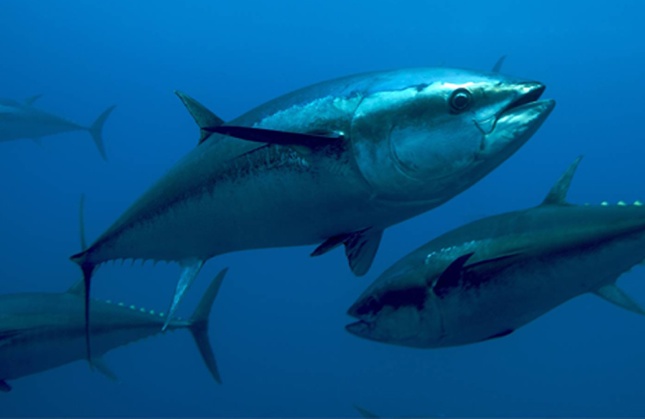
2. Sea turtles
Five of the world’s seven sea turtle species live, migrate and breed in the Gulf region. Kemp’s ridley is the world’s most endangered species of sea turtle, and one of its two primary migration routes runs south of Mississippi. Loggerhead turtles, also endangered, feed in the warm waters in the Gulf between May and October.
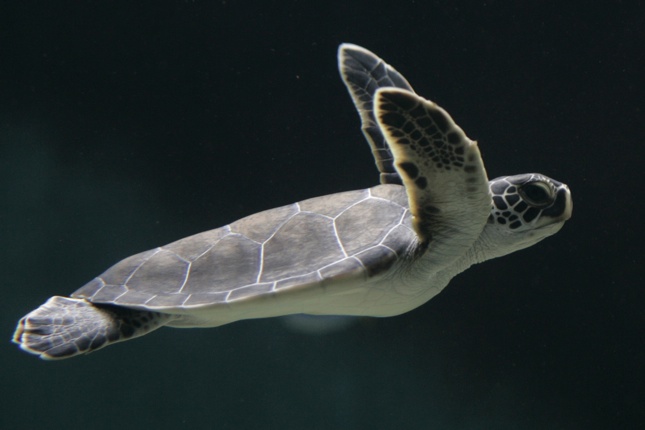
Sea turtle. (Toru Hanai/Reuters)
3. Sharks
Shark species worldwide are in decline. The grassbeds south of the Chandeleur Islands are very close to the oil spill. These grasses are a known nursing area for a number of shark species, which are now beginning their spawning season in the Gulf. Whale sharks, the world’s largest fish, feed on plankton at the surface of the water and could also be affected.
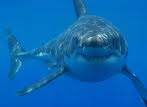
4. Marine mammals — whales, porpoises, dolphins
Oil spills pose an immediate threat to marine mammals, which need to surface and breathe. Not only does the oil pose a threat, but also the nasty toxins that the oil kicks off into the air. A resident pod of sperm whales in the spill area could be at risk along with piggy sperm whales, porpoises and dolphins.
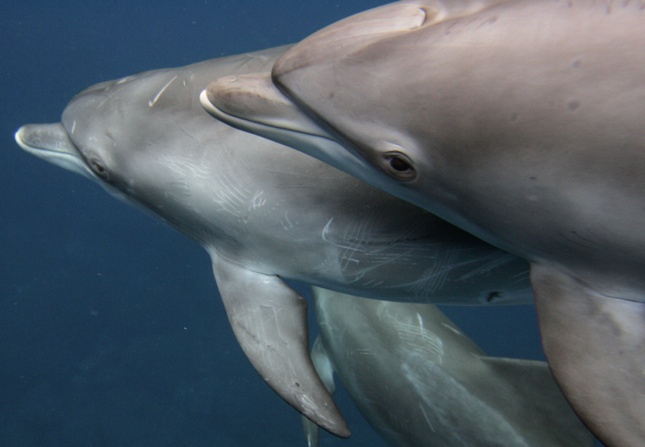
Dolphins. (Yuriko Nakao/Reuters)
5. Brown pelican
The state bird of Louisiana, the pelican nests on barrier islands and feeds near shore. Brown pelicans only came off the endangered species list last year, but they’ve had a rough time in past seasons with storms. Their reproductive rates are low. Breeding season just started, and with eggs incubating the oil could pose a significant threat.
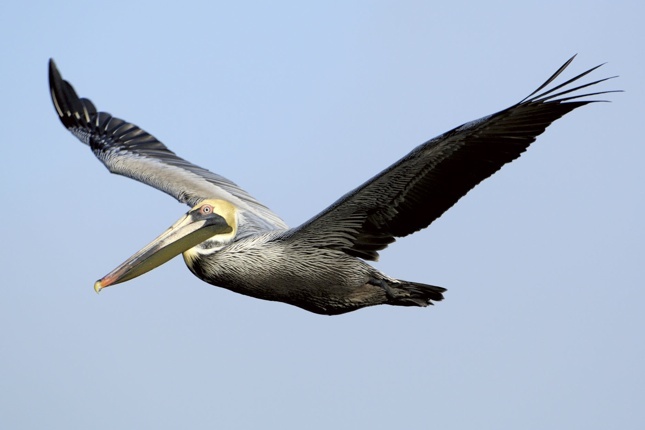
Brown pelican
6. Oysters
The coastal waters around the very tip of Louisiana’s boot-shaped coast are home to some of the most productive oyster farms in the country. Oils and hydrocarbons are toxic to oysters. Unfortunately, hydrocarbons can persist in coastal sediments for months or even years. Louisiana oyster farmers, many of whom barely scrape by with high fuel costs and global competition, could have trouble weathering the oil spill if their harvests are affected.
7. Shrimp and blue crab
Coastal marshes are key to the life cycle and development of Louisiana shrimp and blue crab — both staples of the local seafood industry. Inshore shrimp season will open in mid-May, while brown shrimp are in their post-larval and juvenile development stages.
8. Menhaden and marsh-dwelling fish.
The young offspring of species such as mullet, menhaden and marsh-dwelling forage fishes are especially vulnerable at this time of year. Menhaden is a little fish you’ve probably never heard of, but people all over the world use it everyday. Menhaden fish oil and meat are used in everything from cosmetics to animal feed. Louisiana is one of the world’s biggest suppliers and the oil spill comes smack in the middle of menhaden spawning season.
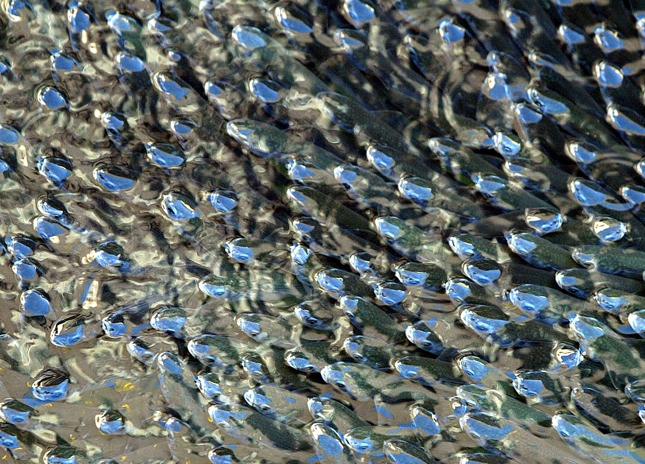
Mullet fish. (Toshiyuki Aizawa/Reuters)
9. Beach-nesting and migratory shorebirds
Overdeveloped beachfronts all along the Gulf Coast from Texas to Florida have made life difficult for several species of plovers, sandpipers, terns and oystercatchers. Those that build their nests on the ground and feed on invertebrates are susceptible to oil on the beaches. Some migratory shore birds fly nearly the length of the Western Hemisphere and use barrier islands in the Gulf for key resting and refueling spots on their journey.
10. Migratory songbirds — warblers, orioles, buntings, flycatchers, swallows and others
About 96 species of neotropical songbirds make a 500-mile journey without a pit stop across the Gulf of Mexico. The next two weeks mark the height of their migration as they travel north from Central and South America to breed in North America. The smoke from controlled burns to mitigate the oil spill could affect the migration, but the impacts will be difficult to monitor.
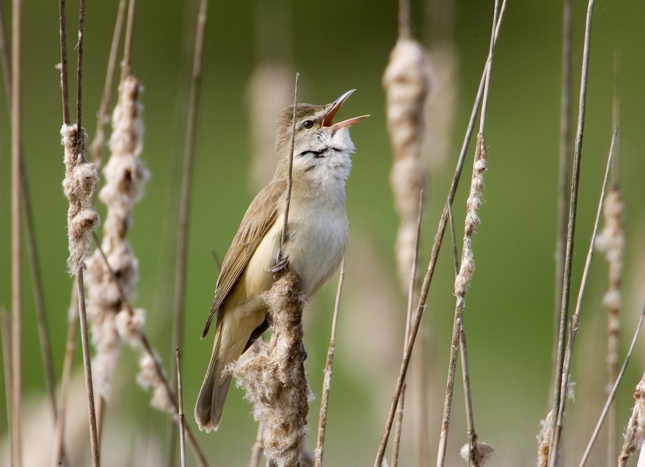
Also have to mention its not what we ‘see’ on the surface of the waters, but the damage was done near ocean floor,, the worst of it is at the bottom that is heavier than water that doesn’t float.. this is so disturbing !! They kept it quiet ‘too long’ ,, now its just a huge mess..
Love the pics.. BEAUTIFUL! Lets hope they get this cleaned up somehow before too many animals suffer catastrophe !!! Praying hard!!
I love the pics, too. So heartbreaking to know the threat on all fish and fowl because of the oil spill. Is any one considering suing the oil company for cleanup and the effect on all the living creatures in the water in that area? Of course, it will be mitigating, but as S. Morris says, “…the worst of it is at the bottom that is heavier than water that doesn’t float…this is so disturbing!” A law ought ban any further drilling along the Atlantic and Gulf coasts. More will be revealed on the extent of damage to these animals.
Please, everyone out there, join the cry for the removal of US Interior Secretary Ken Salazar. This man owes his political careeer to financial support from cattle ranchers in the Rocky Mountain states of the US, and to big oil and gas industries such as British Petroleum. Since taking office, he has reversed endangered species acts in order to support the wholesale massacre of wolves (by poisoning, shooting from planes, tracking via researchers’ collars to destroy whole dens). And now he has somehow managed to quietly give out offshore drilling permits with no Environmental Impact Statements to be filled out for USEPA! This is a crime effecting the whole earth. There is no excuse for the Obama administration to support such a man. Yet they have put him, Salazar, in charge of finding the cause of the spills, which his own actions in fact caused.
(Sources, World Wildlife Fund, National Public Radio’s Washington Bureau)
What infuriates me the most is the government’s
anemic response and reluctance to take action. Why
are we deferring to BP and letting them run the whole show???? It was their ineptitude that led to
this catastrophe…and here we are nearly 2 months
later, and they continue bumbling and fumbling…!!!
If this had occurred say off the coast of France,
do you think for a second that the French govt. would sit back and defer to BP? The U.S Navy has
much in the way of deep water assets, ..that
coupled with guidance from experts in the field
would lead to a resolution of this crisis.
Blame it on greed and new world order. Translation: complete control of the human race.